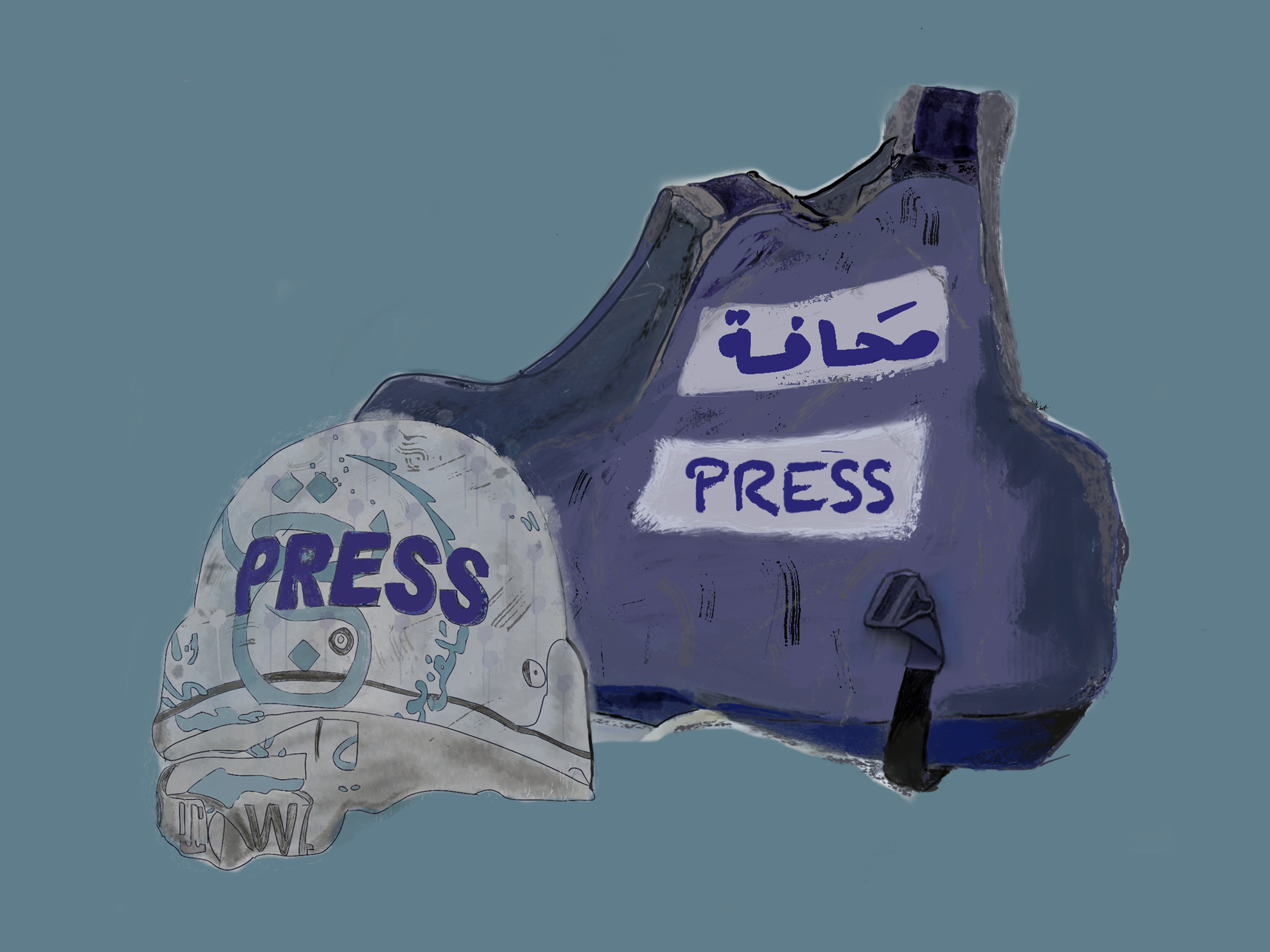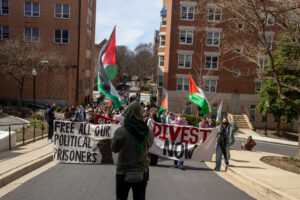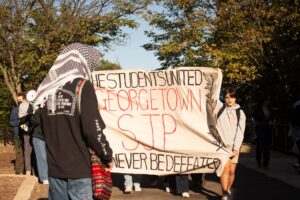The endless social media footage has made the situation in Gaza impossible to ignore. It is, in the words of a South African lawyer suing Israel at the International Court of Justice, “the first genocide in history where its victims are broadcasting their own destruction in real-time.”
During this time of immense suffering in Palestine, the Voice’s editorial board has been considering the responsibility of journalists in accurately informing the public about the ongoing genocide in Gaza. While seemingly straightforward, ideas on what constitutes accuracy have been deficient when it comes to media coverage of the region. Journalists must decide: will we continue to adhere to journalistic standards that silence and vilify people of lower standing in the global imperialist hierarchy, or will we embrace journalism that seeks to fully and compassionately share the stories of Palestinians?
One of the first steps to creating more equitable journalism is to confront our understanding of “objectivity” as based in the myth that marginalized people cannot reliably tell their own stories. As journalist Wesley Lowery wrote last April in an essay on the misunderstood concept of objectivity, “Our aim is not to be perceived as impartial by the people we imagine are our readers, but to accurately inform them about the world they live in.”
Although many mainstream news outlets have attempted to live out Lowery’s call and cover the devastation in Gaza with on-the-ground reporting, they have relied heavily on embedded journalism, or the practice of journalists accompanying one side’s military unit during a conflict. Embedded journalism creates both a conflict of interest for reporters via prior review of their material and severely limits their freedom of movement in the Gaza Strip. There are hundreds of independent Palestinian journalists in Gaza whose voices could be centered instead of, or in addition to, relying on embedded journalism. Rather than choosing to platform these journalists, Western media has instead—in a failed attempt at objectivity—over-relied on information provided by the Israel Defense Forces (IDF) and their own embedded foreign journalists.
Journalists from Gaza hold invaluable insights into the history and context of the most recent Israeli aggression. These voices are the foremost experts on their own experiences and the most well-equipped to tell stories about the extensive suffering of their communities. The IDF has killed many of the voices of Gaza, even as these journalists work tirelessly to show the world even a piece of the onslaught they witness firsthand every day.
Israel’s genocide in Gaza, amid its broader occupation of Palestine, is disastrous for ethical journalism. From Israel denying journalists access to Gaza and the conflicts of interest inherent in embedded journalism to language barriers, frequent communications outages, and disinformation/propaganda campaigns, Israel has presented innumerable challenges to free and fair reporting. On top of that, Western news outlets are also culpable. In the time since Oct. 7, many journalists who expressed support for Palestine, even by liking pro-Palestine posts on social media, have been fired.
Nonetheless, these barriers do not excuse news outlets’ failure to refine their language to more accurately convey the extent of death and destruction in Gaza. Most major American news outlets use the terms “Israel-Hamas war” or even “Israel-Gaza war,” misrepresenting the Palestinian genocide as a conflict between two armed groups rather than an armed state bombing defenseless civilians, the majority of which are children. Avoiding the term genocide is a failure to accurately inform readers, given that Israel’s actions in Gaza fit the legal definition of genocide and have been categorized by UN experts as such.
Simultaneously, professional media has hyperfixated on pro-Palestine student activism and its fallout at American institutions of higher education. The irresponsible and sensationalized coverage of events such as the recent congressional hearing on antisemitism and student protests on college campuses like Harvard University and the University of Michigan distracts from the ongoing genocide.
As student media, we lie at the center of the distracting debates around free speech on American college campuses and have the responsibility, via our coverage, to return our readers’ focus back to what is happening on the ground in Gaza. When major news outlets publish opinions equating Students for Justice in Palestine’s actions with blanket antisemitism, campus media has the responsibility to tell honest and empathetic narratives about our peers.
The Voice has the power to shape student consciousness around social justice issues on this campus. At our most base function, we have the ability and obligation to give our peers context about on-campus activism. We can help the Georgetown and D.C. communities connect events to their origins in the ongoing occupation and genocide happening nearly 6,000 miles away. There is immense power in providing context.
As we see it, the Voice’s present-day mission is grounded in its origins as a group of student journalists who decided there was a moral imperative to report on the Vietnam War and anti-war activism on campus. Following the Black Lives Matter protests in 2020 and the challenges the movement presented to journalism, the Voice committed to being explicitly anti-racist in its coverage. These dual commitments should inform our coverage of Israel’s indiscriminate bombing and invasion of Gaza.
The Voice must center accuracy by ensuring that we represent what students are saying with full context. It is imperative to use terminology and language that is accurate, avoids Islamophobic and racist tropes, and conveys the full gravity of the ongoing genocide in Gaza. Readers should walk away with a central understanding of the genocide at hand and its grounding in the 75-year-long Israeli occupation.
The Voice has the ability to redirect attention away from distracting discourse and toward what is important: why students are protesting. We should aim to make our coverage relevant and specific to Georgetown but also situate all protest within the larger pro-Palestine, anti-Zionist, anti-imperialist movement—since that is what student organizers are ultimately organizing for.
The Voice, student media, and all journalists have a moral obligation to speak plainly, name Israel’s actions for what they are, and contextualize student protest as grounded in the desire to end the ongoing genocide and work towards a free Palestine.







Thank you